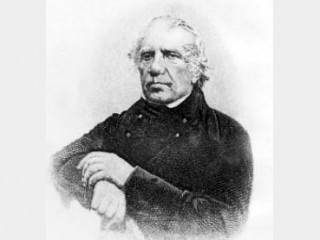
Bamford, Samuel biography
Date of birth : 1788-02-28
Date of death : 1872-04-13
Birthplace : Middleton, Lancashire, England
Nationality : British
Category : Arts and Entertainment
Last modified : 2010-04-06
Credited as : English radical and writer, ,
0 votes so far
Samuel Bamford (28 February 1788 – 13 April 1872), English radical and writer, was born in Middleton, Lancashire. Bamford was one of five children born to Daniel Bamford, a muslin weaver, part-time teacher, and later master of the Salford workhouse, and his wife, Hannah. After his father withdrew him from Manchester Grammar School Bamford became a weaver, and then a warehouseman in Manchester.
In August 1819, Bamford led a group from Middleton to St Peter's Fields, to attend a meeting pressing for parliamentary reform and the repeal of the Corn Laws, where they witnessed the Peterloo Massacre. Bamford was arrested and charged with treason. Although the evidence showed that neither he nor any of his group had been involved in the violence, he was nevertheless found guilty of inciting a riot and sentenced to a year in Lincoln gaol. The experience of the massacre made a deep impression on Bamford, and convinced him that the state's power would always succeed against radical militancy. He came to be seen as a voice for radical reform, but opposed to any activism that involved physical force.
Bamford was the author of several widely popular poems (principally in the Lancashire dialect) showing sympathy with the conditions of the working class, and his Passages in the Life of a Radical (1840 – 1844) is an authoritative history of the condition of the working classes in the years after the Battle of Waterloo. He died at Harpurhey on 13 April 1872 and was given a public funeral, attended by thousands. A memorial obelisk was unveiled in Middleton Cemetery in 1877. Part of the inscription reads: "Bamford was a reformer when to be so was unsafe, and he sufered his faith.
















